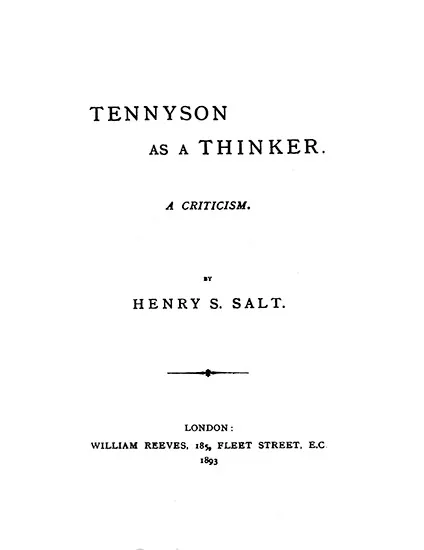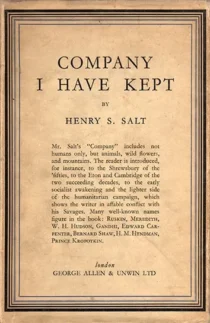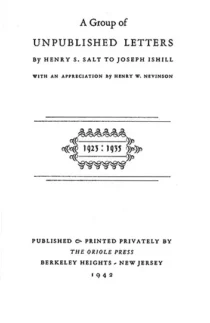
Tennyson as a Thinker, A Criticism
Henry S. Salt
- Publisher: Reeves and Turner, London
- Published: 1893
- Length: 56 pages
- Reprints: 1893
- First Edition Reprint
- 1909 A. C. Fifield, London, 32 pages
- First Edition Reprint
- 1971 Folcroft Library Editions, Folcroft, Pennsylvania, 32 pages
- First Edition Reprint
- 1978 Norwood Editions, Norwood, Pennsylvania, 32 pages
Summary
In Tennyson as a Thinker: A Criticism, Henry S. Salt offers a thought-provoking analysis of Alfred Tennyson’s intellectual contributions to literature and society. While acknowledging Tennyson’s mastery of poetic technique and lyrical style, Salt challenges the widely held notion of Tennyson as a profound philosopher and social thinker.
Salt argues that Tennyson’s conservative views on religion, politics, and social progress stem from his privileged background and are out of touch with the progressive movements of his time. He examines Tennyson’s major works, including “In Memoriam,” “Maud,” and “Idylls of the King,” to demonstrate how the poet’s personal beliefs and social position influenced his writing.
The essay explores Tennyson’s attitudes towards topics such as faith, democracy, women’s rights, and social reform, suggesting that the poet often failed to engage meaningfully with the pressing issues of his era. Salt contends that Tennyson’s reputation as a great thinker is largely undeserved and is more a reflection of the conservative tastes of his contemporaries than of genuine intellectual depth.
Tennyson as a Thinker provides a critical counterpoint to the prevailing admiration for Tennyson in late 19th-century literary circles. It invites readers to reconsider the poet’s legacy and to distinguish between his undeniable poetic gifts and his limitations as a social philosopher.
Reviews
- Tennyson as a Thinker The Observer, June 27, 1909



